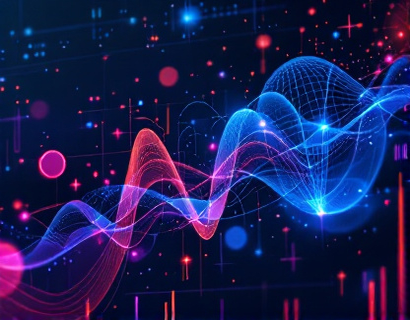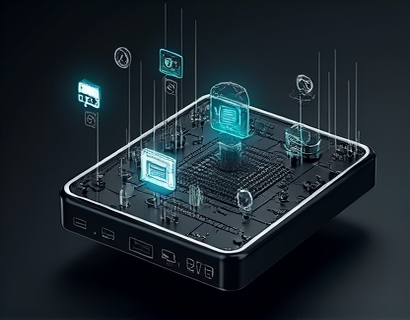Transforming Healthcare with AI-Powered Personalized Insights
The integration of artificial intelligence in healthcare has ushered in a new era of personalized and efficient medical services. This transformation is particularly evident in the development of AI-driven platforms that offer instant personalized medical insights and expert advice online. These platforms are revolutionizing the way individuals access healthcare information and support, making it more accessible, timely, and tailored to individual needs. This article delves into the capabilities and benefits of such platforms, highlighting how they are reshaping the healthcare landscape.
Understanding AI in Healthcare
Artificial intelligence in healthcare encompasses a broad range of technologies and applications designed to improve patient care, streamline operations, and enhance decision-making processes. AI algorithms can analyze vast amounts of medical data quickly and accurately, identifying patterns and insights that might be missed by human practitioners. This capability is particularly valuable in providing personalized medical insights, as AI can consider a wide array of factors including genetic information, lifestyle, and environmental factors to offer tailored advice and recommendations.
Instant Personalized Medical Insights
One of the most significant advantages of AI-powered healthcare platforms is their ability to provide instant personalized medical insights. Users can input their symptoms, medical history, and other relevant information into the system, and receive immediate, data-driven responses. This instant access to expert-level information empowers individuals to make informed decisions about their health, potentially leading to earlier interventions and better outcomes.
For instance, a user experiencing chest pain might input their symptoms and receive guidance on whether to seek immediate medical attention based on their medical history and the severity of their symptoms. This kind of rapid, personalized assessment can be crucial in emergency situations, where every minute counts.
Expert Advice at Your Fingertips
Beyond instant insights, AI-driven platforms connect users with expert advice from qualified healthcare professionals. These platforms often feature a network of doctors, nurses, and other medical experts who can provide detailed consultations and advice based on the user's specific needs. The AI system can match users with the most suitable expert, ensuring that the advice received is both accurate and relevant.
This model not only enhances the quality of healthcare advice but also helps alleviate the burden on traditional healthcare systems. By providing a first-line of support and guidance, these platforms can reduce the number of unnecessary hospital visits and emergency room trips, optimizing resource allocation and improving overall healthcare efficiency.
Enhancing Patient Engagement and Empowerment
The availability of personalized medical insights and expert advice online significantly enhances patient engagement and empowerment. Patients are no longer passive recipients of healthcare services; instead, they become active participants in their health management. This shift is supported by the transparency and accessibility provided by AI-powered platforms, which demystify complex medical information and make it understandable for the general public.
Educated patients are better equipped to manage chronic conditions, adhere to treatment plans, and make lifestyle changes that promote overall well-being. The platform can also track user progress over time, offering continuous support and adjusting recommendations as needed. This ongoing engagement fosters a more proactive approach to health, leading to improved long-term outcomes.
Advanced Technology for Timely Support
The backbone of AI-powered healthcare platforms is advanced technology that ensures timely and accurate support. Machine learning algorithms continuously learn and improve from each interaction, enhancing the platform's ability to provide relevant and precise advice over time. Natural language processing (NLP) technologies enable seamless communication between users and the AI system, making it easy for individuals to express their concerns and receive clear, actionable responses.
Moreover, these platforms often integrate with wearable devices and other health monitoring tools, allowing for real-time data collection and analysis. This integration provides a comprehensive view of a user's health status, enabling more informed and context-aware advice. For example, an AI system can analyze data from a user's fitness tracker to suggest personalized exercise routines or dietary adjustments based on their current activity levels and health goals.
Building Trust Through Reliable Information
Trust is a critical component in any healthcare solution, and AI-powered platforms prioritize building this trust through the provision of reliable and evidence-based information. The content and advice offered are grounded in the latest medical research and clinical guidelines, ensuring that users receive accurate and safe recommendations. Transparency about the sources of information and the expertise of the advisors further enhances user confidence in the platform.
Regular updates and improvements based on user feedback and emerging medical knowledge ensure that the platform remains a trusted resource. This commitment to accuracy and reliability is essential in a field where misinformation can have serious consequences.
Addressing Mental Health and Well-Being
AI-powered healthcare platforms are not limited to physical health; they also play a vital role in addressing mental health and overall well-being. Mental health issues are increasingly recognized as a critical component of comprehensive healthcare, and these platforms can offer valuable support in this area. Users can access resources for managing stress, anxiety, and depression, including guided meditations, cognitive-behavioral therapy techniques, and personalized coping strategies.
By providing accessible mental health support, these platforms help reduce the stigma associated with seeking help and encourage individuals to prioritize their mental well-being. The AI system can monitor user interactions and detect signs of distress, offering timely interventions and resources to promote emotional stability.
Challenges and Considerations
While AI-powered healthcare platforms offer numerous benefits, there are also challenges and considerations that must be addressed. Privacy and data security are paramount, as sensitive health information is handled. Robust security measures and compliance with regulations such as HIPAA are essential to protect user data and maintain trust.
Additionally, the accuracy and reliability of AI advice depend on the quality of the data and algorithms used. Continuous monitoring and improvement of these systems are necessary to ensure they provide safe and effective guidance. It is also important to recognize that AI should complement, not replace, human medical expertise. Users should be encouraged to seek professional medical advice for serious or persistent health issues.
The Future of AI in Healthcare
The future of AI in healthcare is promising, with ongoing advancements expected to further enhance the capabilities of these platforms. Integration with more health devices and systems will provide even more comprehensive data for personalized insights. The development of more sophisticated AI models will improve the accuracy and relevance of advice, making these platforms indispensable tools in modern healthcare.
As the technology evolves, the potential for AI to transform healthcare continues to grow. From personalized medicine to predictive analytics, the applications are vast and the impact significant. By empowering individuals with instant, personalized medical insights and expert advice, AI-driven platforms are paving the way for a healthier, more informed future.










































